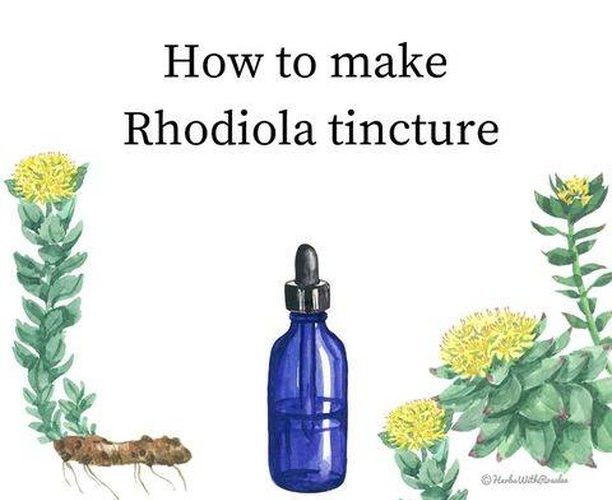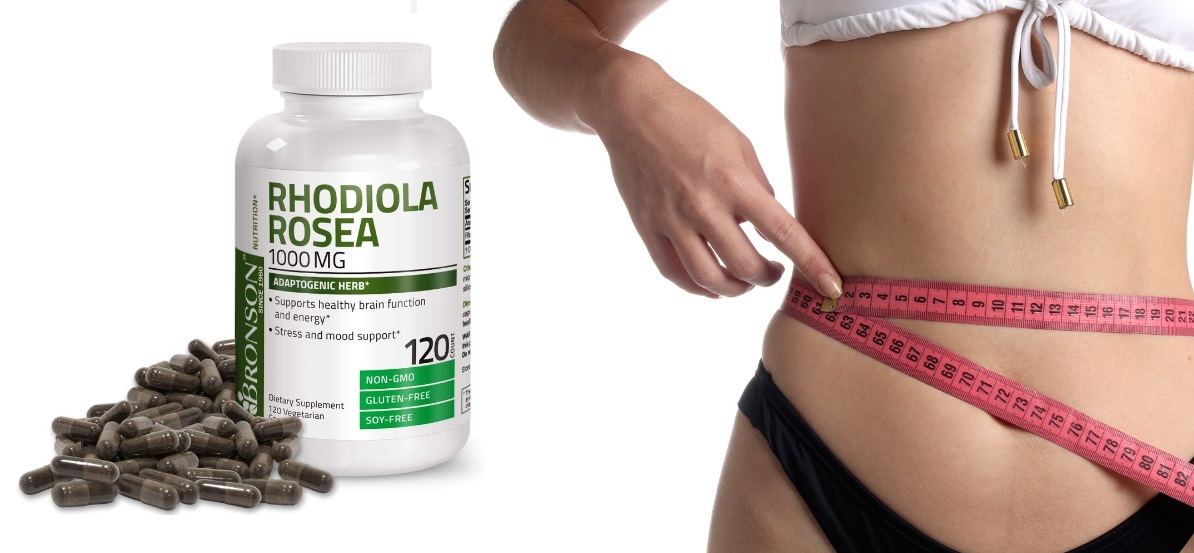Rhodiola rosea, a plant native to the Arctic region, has been used in traditional medicine for centuries to help enhance physical and mental performance. In recent years, this adaptogenic herb has gained attention for its potential role in weight loss. While there is no definitive proof that Rhodiola rosea can directly cause weight loss, its properties suggest it may indirectly support a weight loss plan.
Research indicates that Rhodiola may help improve energy levels, boost exercise performance, and regulate stress – factors that can contribute to more effective weight loss efforts. For instance, increased energy levels can help individuals maintain a healthy diet and be more active throughout the day, which can aid in shedding unwanted pounds. Meanwhile, Rhodiola’s potential to support a healthy response to stress may prevent stress-induced overeating and promote better overall wellbeing.
It’s important to note that taking Rhodiola rosea alone is not a magic solution for weight loss. Instead, it should be considered as a potential supplement to a well-rounded weight loss plan that includes a balanced diet and regular exercise. As with any supplement, it’s crucial to consult a healthcare professional prior to incorporating Rhodiola rosea into a weight loss regimen.
Reader's Roadmap
Understanding Rhodiola
Rhodiola rosea, also known as the golden root, Arctic root, or rose root, is a perennial plant native to both Europe and Asia. It has long been valued for its potential health benefits and has been used in traditional medicine for centuries. As an adaptogen, Rhodiola helps the body cope with various stressors, promoting balance and overall well-being.
The key active compounds in this powerful adaptogenic herb are salidroside and rosavin. These compounds are believed to offer a range of benefits, including supporting mental clarity, physical endurance, and potentially aiding weight loss.
Rhodiola has been traditionally used in Eastern European and Asian countries to combat physical and mental fatigue. Today, it is widely consumed as a supplement in various forms, such as capsules, tablets, and extracts.
Given its role as an adaptogen, Rhodiola may help reduce the detrimental effects of stress. This not only benefits overall health but potentially plays a role in weight management. A 2013 rodent-based study found that Rhodiola when combined with citrus aurantium (bitter orange), reduced visceral white adipose tissue in rats experiencing diet-induced obesity. Another study found that Rhodiola’s most active compound, rosavin, triggers a fat-burning response in animals.
In addition to weight loss benefits, Rhodiola may also help promote a feeling of well-being and improve mood. It does this by stimulating the production of norepinephrine, serotonin, dopamine, and acetylcholine in the brain, which collectively act on key mood- and affect-regulating regions. This was confirmed in a study, as mentioned by Verywell Health.
Due to its potential benefits, many people choose to incorporate Rhodiola supplements into their health and wellness routine. However, more research is needed to fully understand the efficacy and safety of Rhodiola, especially in regard to weight loss. Always consult with a healthcare professional before adding any new supplement to your regimen.

Rhodiola Origins
Rhodiola rosea, commonly known as “golden root” or “Arctic root,” is a natural adaptogenic herb that has been used for centuries to combat fatigue, boost mental performance, and support overall well-being. It can be found in different regions such as Europe, Asia, and Alaska, with a preference for growing in high altitudes in the mountains.
This prized herb is native to the cold, harsh climates of countries like Russia and Scandinavian nations, where people have relied on its properties to enhance their physical endurance and adapt to extreme weather conditions. The use of Rhodiola rosea in traditional medicine dates back to ancient times, and it has been highly valued for its multiple health benefits.
Over the years, scientific research has focused on determining the potential benefits of Rhodiola rosea, including its possible role in weight loss. Studies have looked into the herb’s ability to help the body adapt to various stress factors, such as improving muscle function and supporting the body’s resistance to physical and chemical stressors.
In summary, Rhodiola rosea is a potent adaptogenic herb with origins in the mountainous regions of Europe, Asia, Russia, and Scandinavia. Its various health benefits make it a valuable natural supplement, especially in the context of weight loss and stress management.
Rhodiola and Weight Loss
Rhodiola Rosea is an adaptogenic herb that has been traditionally used to combat stress and improve energy levels. In recent years, it has gained attention as a potential aid in weight loss efforts. While there is no definitive proof that Rhodiola can directly make you lose weight, it may provide support for a weight loss plan by addressing several factors related to weight management.
One way Rhodiola may contribute to weight loss is by enhancing energy levels and combating fatigue. With increased energy, individuals may find it easier to engage in physical activities and maintain a consistent exercise routine, which is essential for losing weight and burning belly fat 2. Improved energy levels may also lead to healthier dietary choices, as fatigue can often result in poor food decisions and increased calorie consumption.
Aside from energy enhancement, Rhodiola may also help manage stress, which can play a significant role in weight gain and difficulty losing weight. By supporting the body’s ability to adapt to stress, Rhodiola may significantly reduce stress-induced eating habits or emotional eating, which is a common challenge faced by those trying to lose weight.
In the context of weight loss supplements, Rhodiola is often included in formulations aiming to boost metabolism and support fat breakdown. Some studies suggest that Rhodiola may possess lipase-stimulating properties, which can potentially enhance the body’s ability to break down and metabolize fats more efficiently.
In summary, Rhodiola Rosea may provide several benefits that could indirectly support weight loss efforts, including improved energy, stress management, and potentially enhanced fat breakdown. However, it is essential to remember that weight loss ultimately depends on maintaining a healthy diet and consistent exercise routine. As such, Rhodiola should be considered a potential supplement to a well-rounded weight loss plan, rather than a standalone solution.
Uses of Rhodiola
Rhodiola rosea, also known as golden root or roseroot, is a popular adaptogenic herb that has been traditionally used to fight against fatigue, depression, and anxiety. By improving the body’s response to stress, Rhodiola can offer natural support in dealing with physical, mental, and environmental stressors.
One notable use of rhodiola is its potential to enhance athletic performance and endurance. Studies suggest that supplementing with rhodiola can help improve physical performance, stamina, and energy levels, especially when facing physical stress. As a result, athletes and fitness enthusiasts may find Rhodiola supplementation useful in optimizing their workout routines and overall fitness goals.
In addition to its physical benefits, Rhodiola can also improve cognitive function, memory, and mental performance, making it a valuable supplement for those seeking to boost their brainpower. Research indicates that rhodiola may help to reduce mental fatigue and improve concentration, which can be beneficial for professionals and students under high-pressure situations.
Moreover, Rhodiola has shown promise in helping to regulate stress hormone cortisol levels. By reducing stress and maintaining a healthy balance of cortisol, Rhodiola may support better mental health and emotional well-being in those suffering from generalized anxiety disorder or other stress-related conditions.
Furthermore, Rhodiola has been suggested to assist in weight management and fat loss. Studies have indicated that it may help the body burn stored fat more efficiently as fuel. Individuals looking to improve their weight loss journey may find Rhodiola beneficial when combined with regular exercise and a healthy diet.
In summary, Rhodiola rosea offers a wide range of potential benefits, ranging from enhanced physical performance and endurance to improved mental performance and stress regulation. Incorporating rhodiola into one’s wellness routine can provide natural support in overcoming various physical and mental challenges while promoting overall health and well-being.
Product Varieties
Rhodiola Rosea, a popular herb used for weight loss, is available in various forms to suit individual preferences and needs. Each product type offers a different method of consumption, making it easier for individuals to incorporate this supplement into their daily routines. Here are some common product varieties of Rhodiola Rosea:
Tea: Rhodiola tea is a popular choice for those who prefer a warm, soothing beverage. It can be consumed daily to enjoy the weight loss benefits and the pleasant aroma of the herb. Preparing the tea involves steeping Rhodiola root or powder in hot water for several minutes before straining and enjoying.
Capsules and Tablets: For a more convenient and precise dosage, Rhodiola Rosea is available in capsule and tablet forms. These products are often preferred by those who like to avoid the taste of the herb or who need consistent and accurate dosing. The daily dosage may vary depending on individual needs and the concentration of the active compounds in each product.
Liquid Extract and Tincture: Another popular option is Rhodiola Rosea liquid extract or tincture, which consists of concentrated active compounds dissolved in alcohol or other solvents. A few drops of the liquid can be added to water, juice, or taken directly under the tongue. The dosing can be easily adjusted, and it tends to have higher bioavailability compared to capsules and tablets.
Pills: Similar to capsules, Rhodiola Rosea pills offer convenience and precise dosage. They can be taken with water and easily incorporated into a daily supplement routine. The pill form may also be combined with other weight loss or health-promoting ingredients.
While all product varieties provide the benefits of Rhodiola Rosea, the choice between to address individual preference and lifestyle. It is essential to follow the recommended dosage instructions provided by the manufacturer and consult with a healthcare professional before starting any supplement regimen, especially if you have pre-existing medical conditions or are taking medications.

Influence on Neurotransmitters
Rhodiola Rosea is known to have an impact on the levels of certain neurotransmitters in the brain, including dopamine, serotonin, and norepinephrine. These neurotransmitters play vital roles in regulating mood, energy, alertness, and feelings of pleasure. By maintaining balanced levels of these neurotransmitters, Rhodiola may support mental well-being and cognitive function.
One way Rhodiola affects neurotransmitter levels is by inhibiting the activity of enzymes that break down dopamine, serotonin, and norepinephrine. By doing so, Rhodiola can help to maintain higher levels of these neurotransmitters in the brain, promoting a positive mood and reducing stress-related symptoms.
Furthermore, Rhodiola appears to increase hypothalamic norepinephrine, which is essential in the regulation of appetite, metabolism, and energy levels. This increase in norepinephrine may support weight loss goals by helping to reduce visceral white adipose tissue and prevent diet-induced obesity.
In addition to influencing neurotransmitter levels, Rhodiola has also been shown to improve the overall function of the nervous system. It may help to reduce anxiety, relieve fatigue, and enhance work performance, making it a valuable supplement in managing stress and promoting optimal cognitive function.
It is important to note that while Rhodiola’s influence on neurotransmitters has been demonstrated in various studies, the exact mechanisms are not yet fully understood. More research is needed to better understand the precise ways in which Rhodiola affects neurotransmitter levels and how this may contribute to its various health benefits. Nonetheless, Rhodiola remains a popular and potentially helpful supplement for managing stress, supporting weight loss, and improving cognitive function.
Side Effects and Precautions
Rhodiola rosea, an adaptogenic herb, has numerous potential health benefits, but it also comes with some risks and precautions. One of the possible side effects of Rhodiola supplementation includes dizziness. Users might experience a sense of instability or imbalance when taking this herb.
Another common side effect is dry mouth. This occurs when the mouth’s salivary glands don’t produce enough saliva, leading to an uncomfortable sensation of dryness and possibly even difficulty swallowing.
It is important to note that pregnant and breastfeeding women should exercise caution when using Rhodiola. There is not enough reliable information currently available to determine whether it is safe for them to take this herb. Pregnant women and those who are breastfeeding should consult with their healthcare provider before using Rhodiola to discuss potential risks and benefits.
People with high blood pressure or other medical conditions should also be cautious when considering Rhodiola supplementation. Although Rhodiola is generally considered safe for most individuals, it can interact with medications and potentially affect blood pressure levels. The herb has been known to lower blood pressure in some cases, which can be dangerous for people already on blood pressure medications or with pre-existing conditions.
In conclusion, while Rhodiola can offer numerous health benefits, including potentially aiding in weight loss, it is important to be aware of its potential side effects and precautions. To ensure safety and proper usage, consult with a healthcare professional before starting any supplementation, especially if you have any pre-existing medical conditions or are pregnant or breastfeeding.
Interactions with Medications
Rhodiola has potential interactions with several medications, especially those used for depression, anxiety, and hypertension. Additionally, it may interfere with blood thinners, insulin, and immunosuppressants.
Serotonergic drugs, which influence the levels of serotonin in the brain, can cause an interaction with Rhodiola. It could potentially lead to a condition called serotonin syndrome, where serotonin levels become too high, causing symptoms such as agitation, hallucinations, and rapid heart rate.
An example of a serotonergic drug is sertraline, a selective serotonin reuptake inhibitor (SSRI) commonly used to treat depression and anxiety. Combining rhodiola with sertraline could increase the risk of serotonin syndrome, so it is essential to consult a healthcare professional before starting a Rhodiola supplement when taking sertraline or any other serotonergic medication.
Stimulant drugs are another category of medication that could interact with Rhodiola. The combination of rhodiola and stimulant medications may cause increased heart rate and blood pressure, leading to possible health risks.
Other medications, such as Cozaar (losartan), Dilantin (phenytoin), and Jantoven (warfarin), are also known to potentially interact with Rhodiola. It is crucial to consult a healthcare professional before taking Rhodiola when also on these medications.
In summary, when considering taking Rhodiola for weight loss, it is crucial to be aware of potential interactions with medications, especially serotonergic drugs like sertraline, stimulant drugs, and other medications like losartan, phenytoin, and warfarin. Consulting a healthcare professional before starting a Rhodiola supplement is essential to ensure safety.

Scientific Studies and Evidence
Rhodiola rosea is a popular herb known for its potential benefits in stress management and anti-aging. Research has shown that Rhodiola extracts can extend the lifespan in a range of model organisms, including fruit flies, worms, and yeast, without affecting food intake, body weight, or fecundity. It has been found to increase stress resistance and delay age-related decline in physical activity and immune functions.
In terms of weight loss, there is limited direct evidence linking Rhodiola to weight reduction. However, stress reduction and improved mental well-being may contribute indirectly to weight loss, as stress is known to disrupt healthy eating habits and weight management. Rhodiola is believed to enhance antioxidant capacities, reducing oxidative stress and supporting overall health.
While studies on animals, such as rats, have shown some promising results, additional research is necessary to fully understand the effects of Rhodiola on weight loss. It is crucial to keep in mind that research using animals may not always directly translate to humans.
The National Center for Complementary and Integrative Health (NCCIH) has stated that although Rhodiola is marketed as a dietary supplement to increase energy, endurance, and mental capacity, there is still insufficient high-quality evidence to support these health claims.
In summary, while Rhodiola rosea demonstrates potential benefits for stress management, anti-aging, and overall well-being, direct evidence supporting its effectiveness in weight loss remains limited. It is recommended that individuals seeking weight loss solutions rely on proven methods such as maintaining a balanced diet, incorporating regular exercise, and developing healthy lifestyle habits.
Nutritional Information
Rhodiola rosea, commonly known as golden root or arctic root, is a powerful adaptogenic herb that has been shown to provide various health benefits. It has been traditionally used in treating stress, fatigue, depression, and nervous system disorders.
One of the key benefits of Rhodiola rosea is its ability to support the body during stressful situations, thanks to its adaptogenic properties. This means that it can help the body adapt to and resist physical, chemical, and environmental stressors. Regular consumption of rhodiola can improve the body’s resistance to these stressors, thus promoting overall health and well-being.
Rhodiola rosea may also be beneficial for aging individuals by providing support to their immune system. It is believed to have immune-modulating effects, which means it can help to regulate the immune response, ensuring an optimal balance. This is particularly important as the immune system weakens with age, making individuals more susceptible to illnesses and infections.
In addition to these benefits, Rhodiola rosea has shown the potential to help individuals maintain healthy blood sugar levels, which is crucial for those with diabetes. Some studies suggest that the herb can increase insulin sensitivity, thus aiding in the regulation of blood sugar levels.
Although Rhodiola rosea is not specifically a weight loss supplement, it does possess certain qualities that may indirectly promote weight loss. For instance, it has been suggested that the herb could help burn more belly fat, especially when combined with regular exercise, thus accelerating weight loss efforts.
When considering the use of Rhodiola rosea for its nutritional benefits, it is crucial to ensure proper dosage and consult with a healthcare professional if there are any concerns or questions. This will guarantee that individuals achieve the maximum benefits of the herb without any adverse effects.
In conclusion, Rhodiola rosea offers a range of health benefits, including stress resistance, immune system support, and potentially aiding in blood sugar regulation. While it may not directly promote weight loss, the herb can be a valuable addition to a person’s overall health and wellness routine.
Conclusion
In summary, Rhodiola Rosea may play a role in supporting weight loss efforts. Its potential benefits include helping the body burn stored fat more efficiently as well as reducing fatigue and promoting a healthy stress response. Furthermore, it can help increase serotonin and dopamine levels, possibly leading to a more enjoyable exercise experience and further contributing to weight loss goals.
While Rhodiola Rosea may not be a miraculous weight loss solution, it can be considered as an additional tool to enhance the effects of regular exercise and a healthy diet. It is important to note, though, that further research is needed to fully understand the extent of Rhodiola’s weight loss benefits and appropriate dosages.
In conclusion, Rhodiola Rosea demonstrates potential as a valuable aid in supporting healthy weight loss goals by complementing traditional approaches like exercise and diet management.







Leave a Reply
View Comments